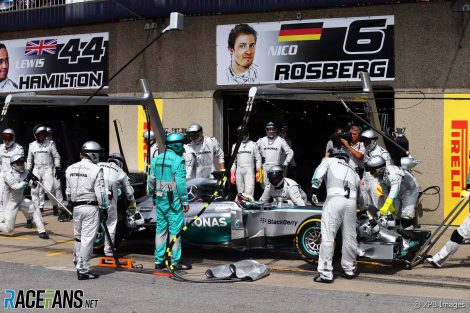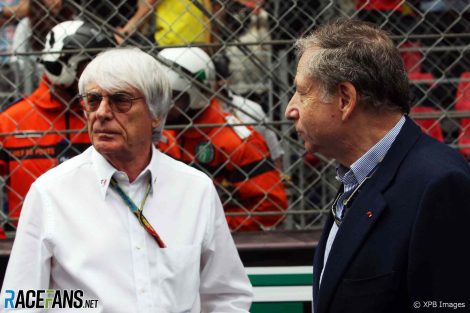Formula 1 fans got their first glimpse of the new generation of V6 hybrid turbo cars on this day 10 years ago.
But Force India, the first team to officially reveal an image of their new car, were somewhat coy about doing so, releasing only a rendering of their new VJM07 in profile. The team did not want to reveal the peculiar shape of its new nose, a side effect of the new regulations shared by almost every team.
Strange though these new appendages on most cars were, future iterations of the rules addressed them. But a more controversial change at the other end of the cars was here to stay.
Eight years after its last change in engine regulations, Formula 1 had another new formula. FIA president Jean Todt, who took charge in 2010, had pushed for the introduction of V6 hybrid turbo power units. F1 had introduced hybrid power to its engines as early as 2009, but the new engines were designed from the ground up to incorporate two advanced systems for recovering kinetic and heat energy – the MGU-H and MGU-K.
But the move from conventional V8 engines to V6 hybrid turbos was not without its detractors. Not least the person running the show at the time. F1 CEO Bernie Ecclestone made plain his dislike. Time and again he went to the media with fresh quotes trashing his own championship in terms Gerald Ratner would have blanched at.
Chief among his objections was how much quieter the engines would become. And when it emerged Mercedes had produced by far the best power unit for the new rules, and mated it to a chassis which exploited its potential better than any other, his contempt peaked. “I’m sure the promoters will lose a big audience and I’m quite sure we’ll lose TV,” he warned.
But 10 years on, Ecclestone is long gone, and the V6 hybrid turbos remain. By the time they are replaced the rules will have been in place 12 years, account for over 250 grands prix.
Does that longevity prove the rules change was right all along? And how have the hybrid power units reshaped the sport over the last decade?
Advert | Become a RaceFans supporter and
Reliability
The sheer complexity of the new power units prompted concerns of widespread reliability problems when they were introduced. Sure enough, not all teams were ready to run when testing began in late January 2014, and those who did completed precious few laps.

On the opening day of testing at the Jerez circuit in Spain, just…
Click Here to Read the Full Original Article at RaceFans…

